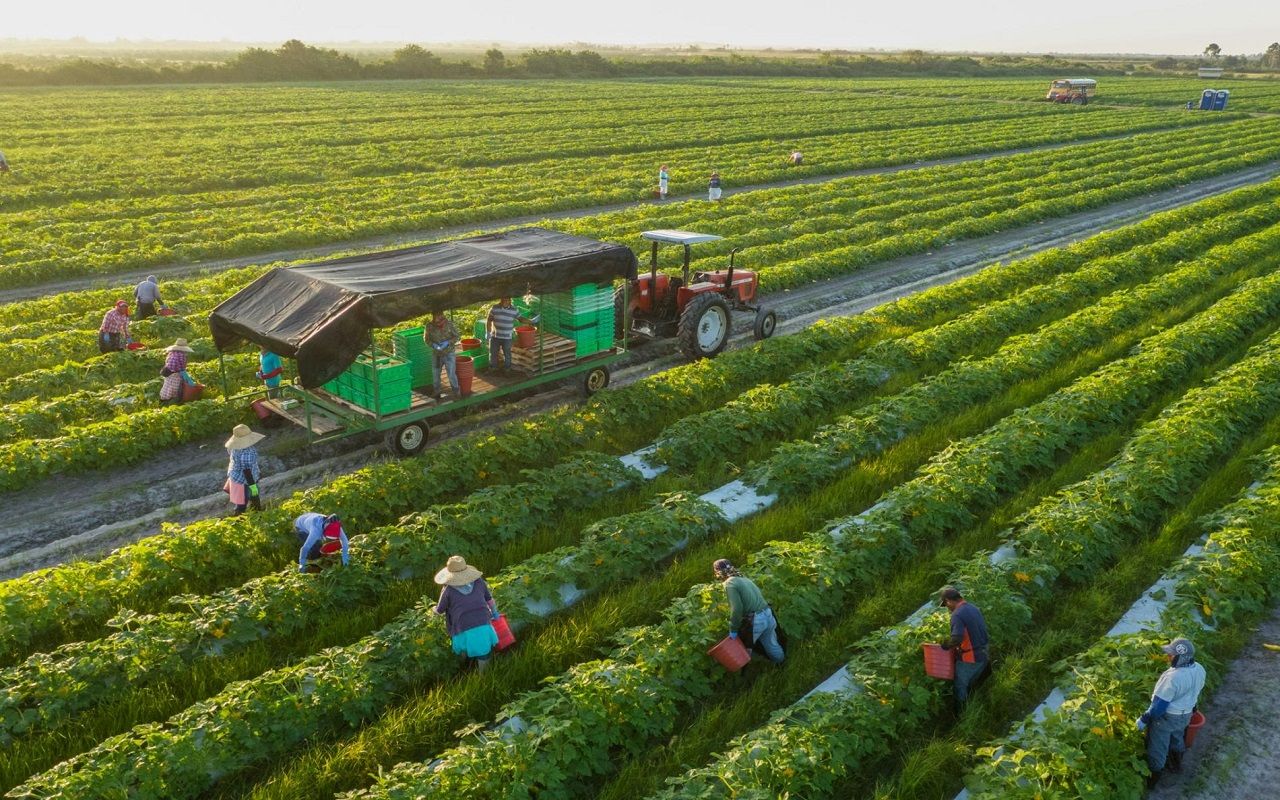
How Sustainable Agriculture Builds Resilient Food Systems

In an era where the global population continues to surge, and environmental concerns loom large, the need for sustainable agriculture has never been more crucial. Sustainable agriculture goes beyond conventional farming practices, aiming to balance the needs of the present without compromising the ability of future generations to meet their own needs. In this article, we will explore how agriculture acts as a cornerstone in building resilient food systems, ensuring food security, preserving the environment, and promoting long-term agricultural viability.
The Pillars of Sustainable Agriculture:
Sustainable agriculture is built upon a foundation of principles that prioritize environmental health, economic profitability, and social responsibility. These principles encompass a range of practices, including organic farming, agroforestry, crop rotation, and integrated pest management. Together, these practices contribute to the overall resilience of food systems, addressing the challenges posed by climate change, soil degradation, and resource depletion.
Protecting Ecosystems:
One of the primary advantages of Sustainable Agriculture is its focus on preserving and enhancing the environment. Conventional farming often relies heavily on synthetic inputs such as pesticides and fertilizers, contributing to soil degradation and water pollution. In contrast, agriculture employs practices that minimize the use of harmful chemicals, promote biodiversity, and protect natural resources.
Agroecology, a key component of agriculture, emphasizes the integration of ecological principles into agricultural systems. This holistic approach fosters resilient ecosystems, where diverse plant and animal species coexist, contributing to pest control, pollination, and soil fertility. By working in harmony with nature, agriculture mitigates the environmental impacts associated with intensive farming practices.
The Foundation of Sustainable Agriculture:
Healthy soil is the lifeblood of agriculture, and sustainable practices prioritize soil health to ensure long-term productivity. Crop rotation, cover cropping, and the use of organic matter help maintain soil structure, prevent erosion, and enhance nutrient cycling. These practices not only boost agricultural yields but also contribute to the resilience of food systems by mitigating the impacts of extreme weather events and climate variability.
Furthermore, sustainable agriculture promotes agroforestry, the integration of trees and shrubs into agricultural landscapes. This practice enhances soil fertility, conserves water, and provides additional sources of income for farmers. The symbiotic relationship between trees and crops creates a resilient agroecosystem that can withstand the challenges posed by changing environmental conditions.
Climate Change Adaptation:
As the impacts of climate change become increasingly evident, the need for agricultural practices that can adapt to these changes is paramount. Sustainable agriculture incorporates climate-smart strategies that enhance the resilience of food systems. Drought-resistant crops, water-efficient irrigation methods, and the use of cover crops to mitigate extreme temperatures are integral components of climate-smart agriculture.
By diversifying crops and incorporating resilient plant varieties, agriculture not only adapts to changing climates but also contributes to the overall stability of food production. This adaptability is crucial for ensuring food security in the face of unpredictable weather patterns and shifting growing seasons.
Fostering Sustainable Livelihoods:
Sustainable agriculture is not only environmentally beneficial but also economically viable. By promoting diverse and resilient farming systems, sustainable practices reduce the dependence on external inputs, lowering production costs for farmers. Agroecological approaches, such as permaculture and organic farming, often lead to improved yields over the long term, enhancing the economic sustainability of agriculture.
Moreover, agriculture emphasizes the importance of fair trade and equitable distribution of resources. By supporting local farmers and fostering community-based agriculture, sustainable practices contribute to the creation of robust, locally rooted food systems. This not only ensures the economic well-being of farmers but also strengthens the overall resilience of the food supply chain.
Nurturing Communities:
Sustainable agriculture recognizes the interconnectedness of food systems and communities. By prioritizing social responsibility, it seeks to address issues such as food justice, equitable access to resources, and the empowerment of marginalized farmers. Community-supported agriculture (CSA) models, farmer cooperatives, and participatory decision-making processes are integral components of socially responsible agriculture.
Empowering small-scale farmers, particularly in developing regions, is a key focus of agriculture. By providing training, access to resources, and promoting inclusive agricultural policies, sustainable practices contribute to poverty alleviation and the creation of resilient communities that can weather economic uncertainties.
Conclusion:
Sustainable agriculture stands as a beacon of hope in the quest for resilient food systems. By harmonizing with the environment, prioritizing soil health, adapting to climate change, fostering economic viability, and embracing social responsibility, sustainable agriculture offers a holistic approach to the challenges facing modern agriculture. As we look towards the future, the adoption and promotion of sustainable agricultural practices are essential for building a world where food systems are not only productive and economically viable but also environmentally and socially responsible. In the year 2024 and beyond, let us collectively embrace the principles of agriculture to cultivate a planet that sustains both life and livelihoods.
Also Read: Friend of The Earth
Appreciate the creator